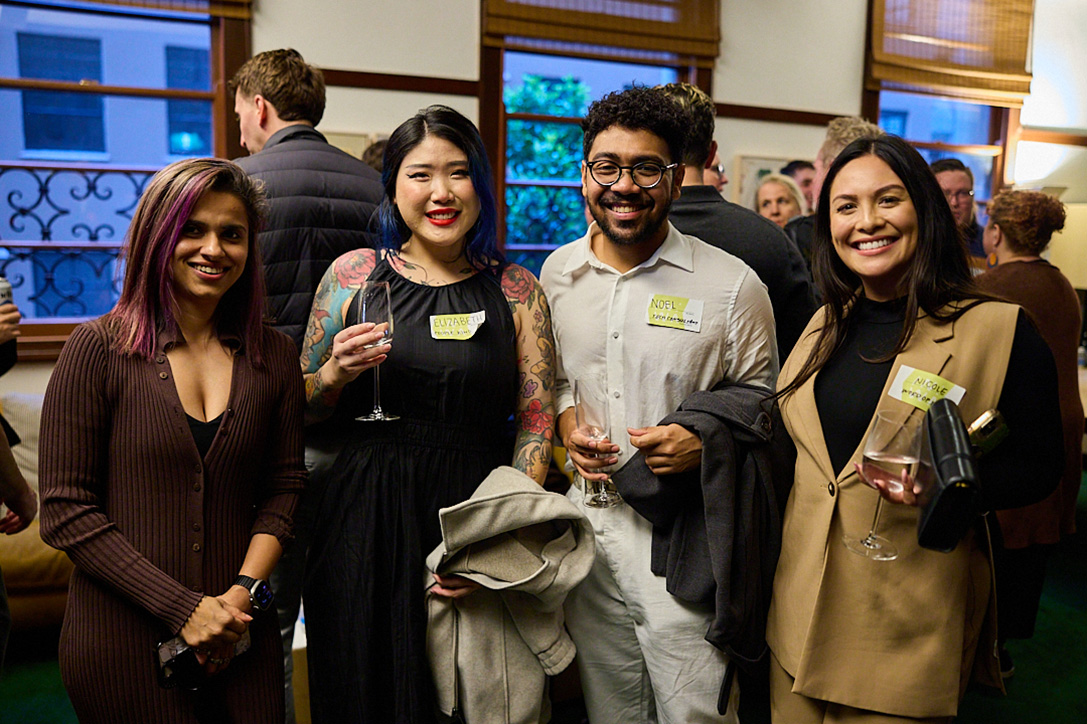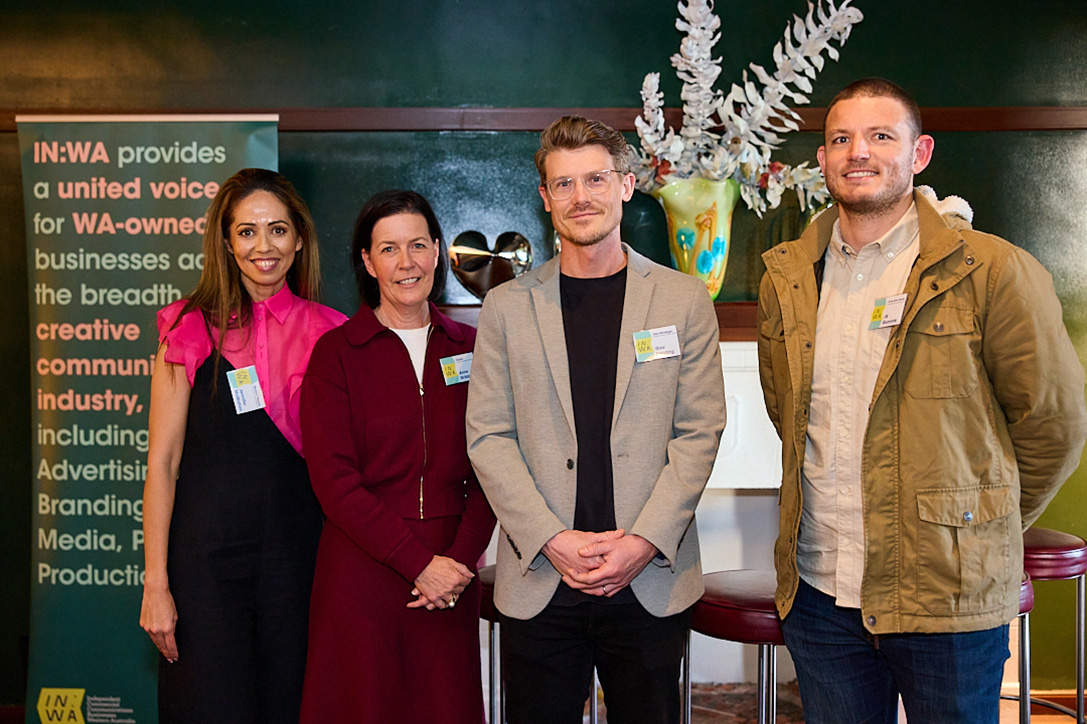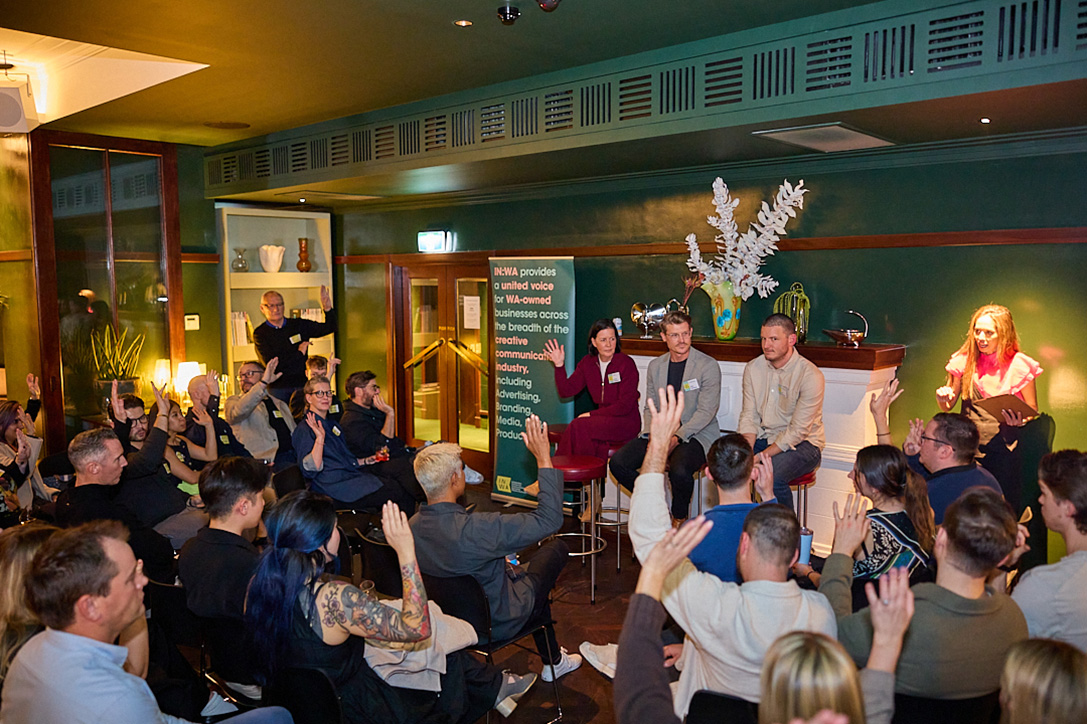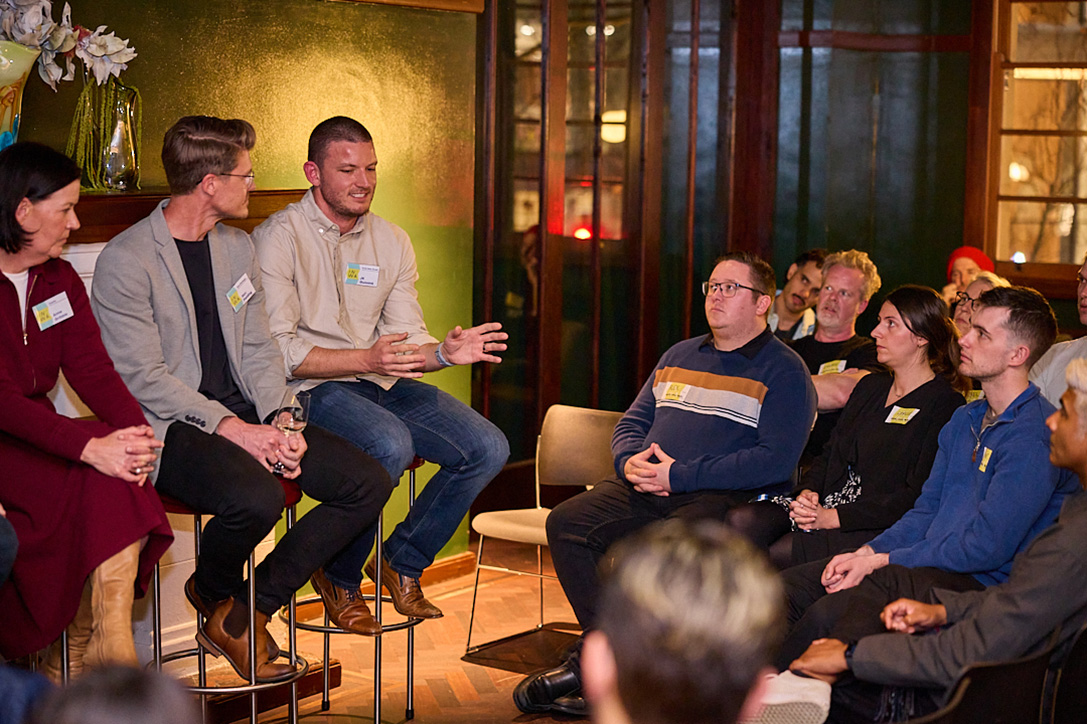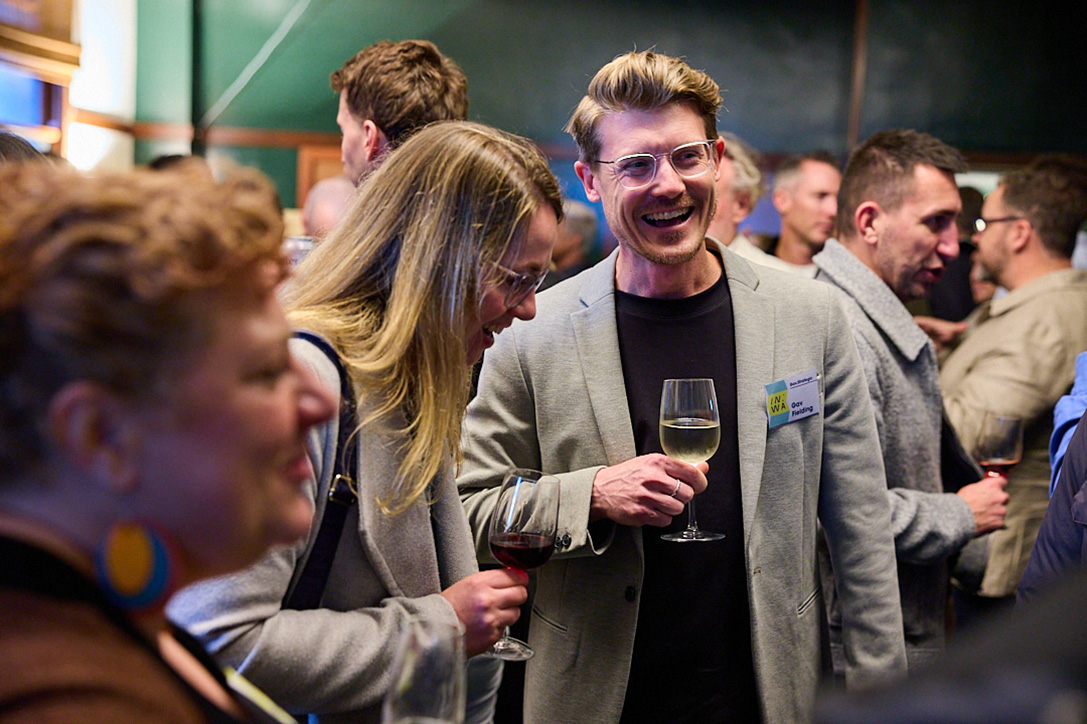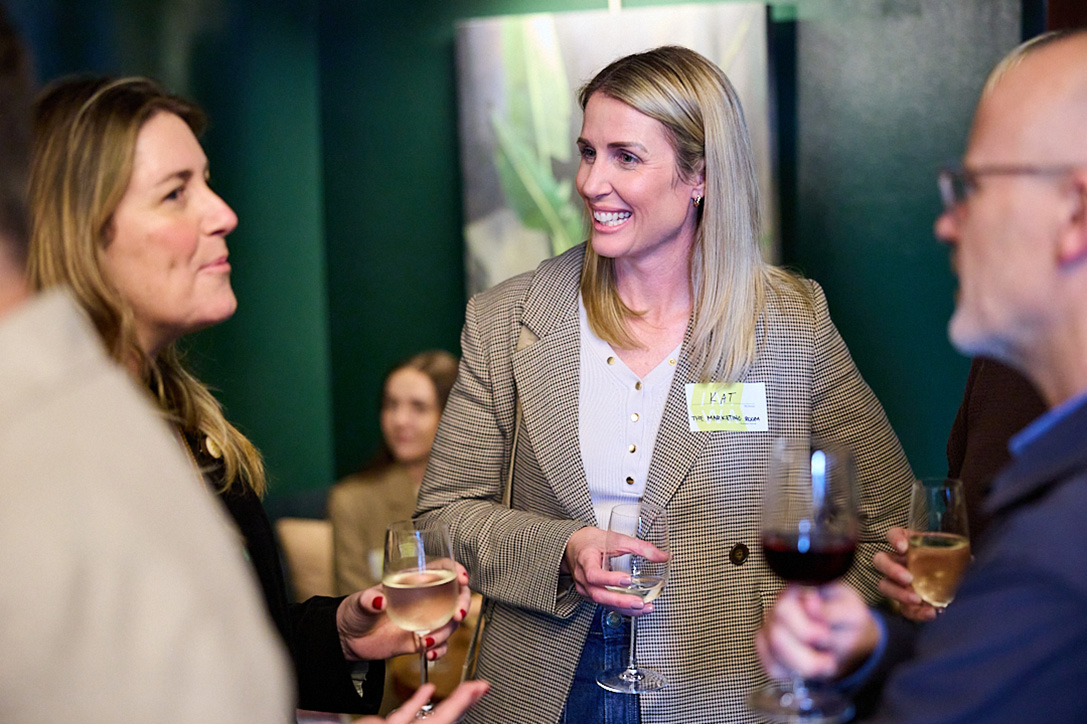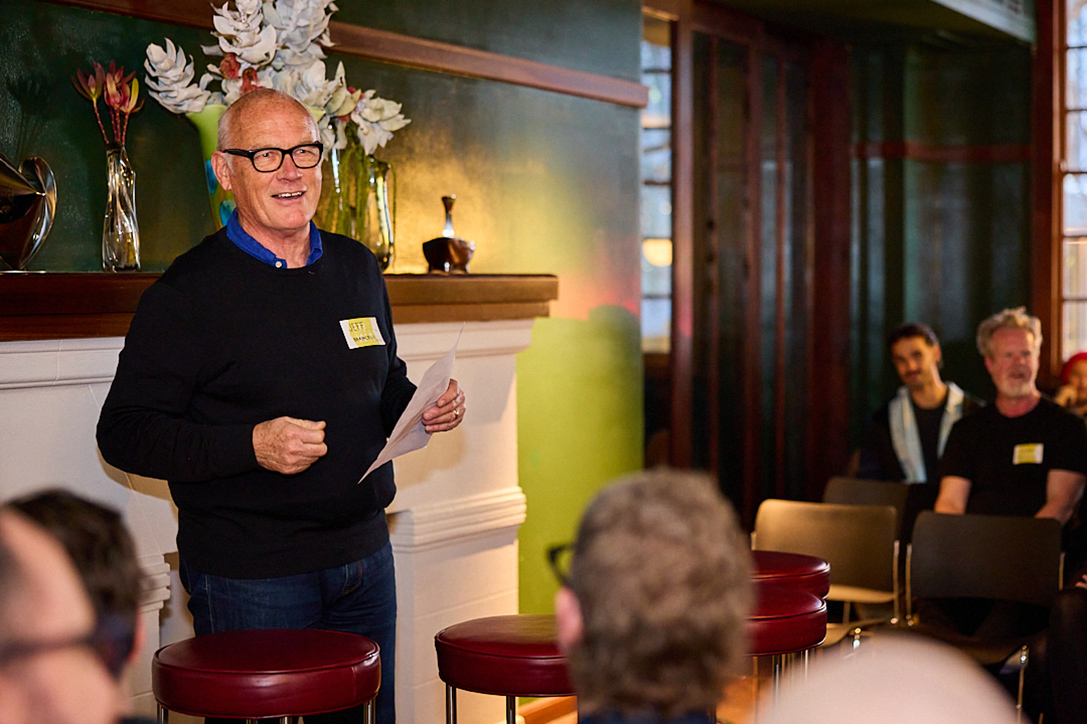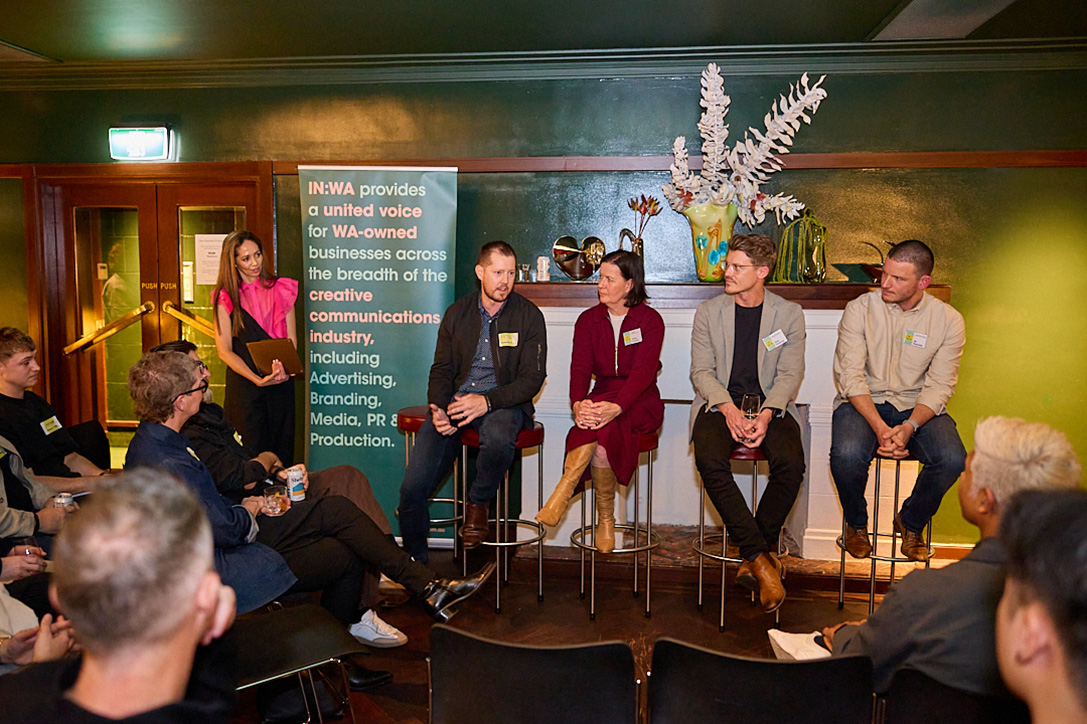IN:WA panel event – How AI agents are transforming business
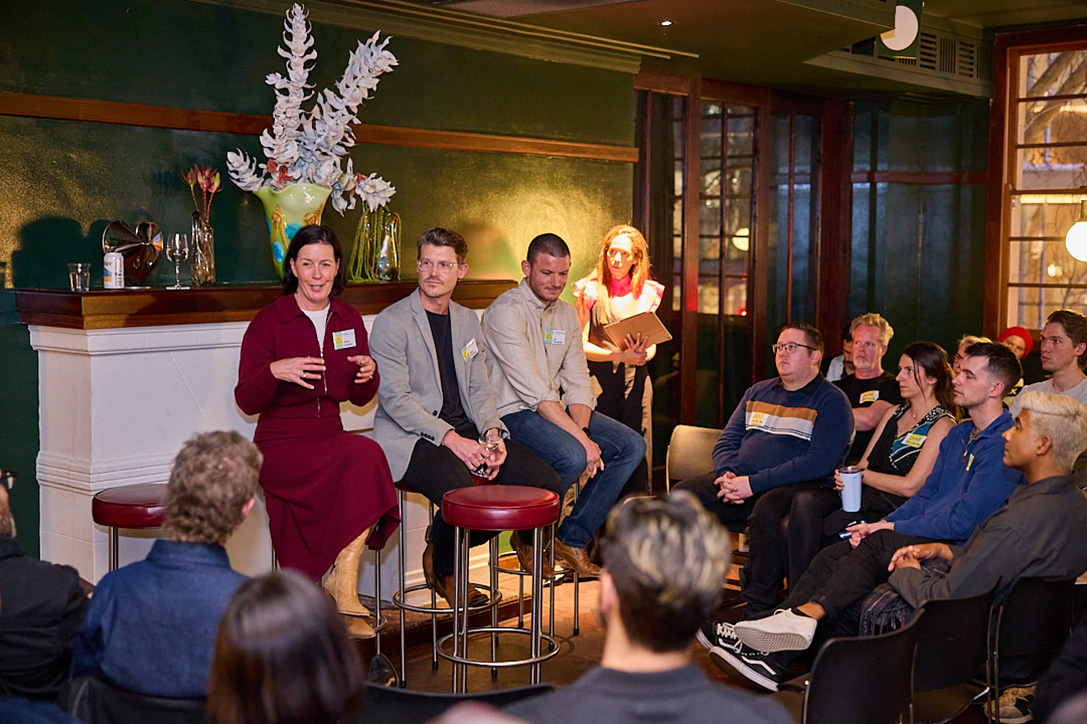
AI isn’t just hype anymore. It’s here, it’s powerful, it can be messy, and it is starting to change the way businesses work. That was the clear message from the latest IN:WA Panel Event, Transforming Business With AI Agents, held Thursday August 21 at Lawson Flats in Perth.
The event was a sell-out, and IN:WA Chair Jeff Champtaloup made welcomes and introductions to a full house of IN:WA members and guests. Jennifer MacMahon guided the discussions with the panel featuring Gav Feilding, JK Gunnink, and Anne Gribble.
The ‘official’ panelists were joined throughout the discussion by audience members who had questions to ask and points of view to share. What followed was interactive and insightful discussions on how AI is impacting business operations, team culture and creativity.
AI Tools vs AI Agents
One of the first questions posed to the panel was: what’s the difference between AI tools and AI agents?
While tools such as ChatGPT, MidJourney or Claude help individuals complete defined tasks, AI agents are designed to operate semi-independently, combining multiple processes, data sources and goals. But as the panellists pointed out, this doesn’t mean agents are plug-and-play solutions.
“They’re often a hammer when you need a screwdriver,” one participant noted. “AI agents can be incredibly powerful, but they require a lot of work to configure, test and maintain before they can add real value.”
What Do We Want AI To Do?
A central theme of the night was not just what is possible with AI, but what we actually want it to do for us. For Anne Gribble, some of the most valuable early adopters of AI inside agencies and organisations are our most creative and analytical thinkers.
“It is often our best creative and analytical people who enjoy and get the most out of AI,” she said. “The way we communicate with AI, how we prompt and guide it, is absolutely crucial, and that requires intelligent and strategic inputs.”
This raised broader questions of strategy and intent. AI can enhance efficiency, automate workflows, or support creativity, but businesses should be deliberate in where they deploy it.
Culture and Team Adoption
Another strong message was the importance of encouraging team ownership and experimentation with AI. Several agencies are already running AI initiatives, like ‘AI August’, a month dedicated to experimentation where staff are asked to create their own AI projects and present them to the team.
Others have encouraged staff to test tools relevant to their roles within clear time parameters. Staff are asked to try a platform for a set period, and then report their findings to the group. This approach not only accelerates learning but embeds a culture of curiosity and innovation.
Jack from Distl has observed a perceptual shift in the way the sector speaks about AI: “There’s been a flip in the market from ‘you’re cheating by using AI’ to ‘you’re winning using AI’.”
The ideal outcome, he suggested, is not to replace people, but to augment teams.
“Think of AI like a super power that can enable your people to move faster and produce higher quality work, faster.”
Creativity and AI
While the debate on whether AI helps or hinders creativity is bound to continue for some time, some consensus leaned towards AI being an enhancer of human nature and skills rather than a replacement. AI can spark ideas, provide new perspectives, and take care of repetitive work so that creative teams can focus on higher-level, and higher-value, thinking.
As one panellist put it: “AI doesn’t kill creativity. It makes space for it.”
Policies and Responsibility
A show of hands on the night revealed that only a few companies had formal AI use policies. Adam Perich from Word of Mouth agency shared that his business had implemented a simple one-page AI policy – setting clear expectations for responsible internal use that provides guidelines, without stifling experimentation.
For many agencies, AI policies remain a work in progress. Striking the right balance between flexibility and governance will be an ongoing challenge as AI becomes more embedded in everyday operations.
Looking Ahead
The IN:WA panel highlighted the enormous opportunities, and the real challenges, AI presents for agencies, consultancies, and businesses across WA. From practical considerations about training and team adoption, to strategic questions around creativity, productivity and compliance, the evening reinforced that AI is no passing trend but a transformative shift.
As Jeff Champtaloup noted in his opening remarks, events like these are designed to give WA’s independent communications and creative industry a space to connect, share insights and explore the future together.
With the energy in the room and the diversity of perspectives shared, it’s clear that AI will remain high on the agenda for IN:WA and its members in the months and years ahead.
If you’re interested in the IN:WA community, events, and pillars of sharing, learning and representation, contact them about joining here.
Photo credit: SoCo Studio
